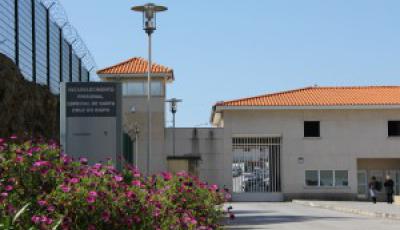Foreigners and Ethnic Groups in Prison: Some Reflections from Portugal
Posted:
Time to read:
Guest post by Sílvia Gomes, researcher at the Research Center for the Social Sciences, University of Minho, and the Criminology and Behavioral Sciences Research Unit, Maia Institute of Higher Education, in Portugal. Currently, Sílvia is teaching the Criminology course at the Maia Institute of Higher Education.
In this post I wish to discuss some setbacks of not collecting data on race and ethnicity at national level, focusing in particular on the limitations it imposes with regards to crime data in Portugal.
The interconnection between ethnic and criminal issues has long been the subject of controversy in many parts of the world. The debate is particularly lively within some disciplinary fields, such as sociology, where part of the academia refuses to engage in studies connecting these phenomena―it has been argued that such studies theoretically and scientifically reify concepts of “ethnicity” and “race,” allowing potentially undesirable implications linking criminality to migrants or national ethnic groups which may in turn have the ineligible consequence of forging an artificial association of cause and effect.
Others in academia argue that it is not social research that leads people to make such associations, but rather that there is plethora of common-sense notions, stereotypical narratives and journalistic expressions linking “the other”―whether in terms of race, ethnicity and/or nationality―to crime. Thus it follows, the argument goes, that it is important for social scientists to give their input and examine in a critical and sound manner these associations. In doing so, social scientists may contribute to reinforce, undermine or dispel current beliefs built on a stereotypical basis. In Europe, for example, several studies on criminal justice and ethnicity have shown that police, judicial and penal practices are applied with particular severity to those with non-European phenotype, while in the US, the disparities between ethnic groups in the criminal justice system (with an over-representation of blacks and hispanics in prisons) are well documented as among the largest in the world.

The Portuguese Constitution prevents direct and indirect registration by the state of data on race and ethnicity. This is not exclusive of Portugal and other European countries have similar legal provisions. In addition to not recognizing ethnicity, publicly available statistics on crime in Portugal include only the generic category of ‘foreigners,’ not distinguishing between residents—whether documented or undocumented—and visitors. Portuguese researchers make use of different methodologies to study these phenomena. Studies that focus on ethnicity (independently of nationality) in relation to crime tend to remain largely qualitative, providing a micro but in-depth picture of criminality, while studies centered on immigration and crime tend to rely on quantitative methods, showing a broader, but less nuanced view of crime in Portugal. Yet, the interplay between ethnicity, migration, and crime is rarely studied in the country.
In my doctoral research I aimed to contribute to the study of crime as related both to ethnicity and citizenship in Portugal. Specifically, I focused on citizens from Eastern Europe and Lusophone Africa and Portuguese Roma individuals, using qualitative investigation procedures with quantitative data analysis. This meant that I focused my research both on Portuguese citizens of the largest ethnic minority (the Roma) and on two of the largest groups of immigrants, which include foreign-nationals of white and black minorities. The idea was not to merge ‘ethnic minorities’ with ‘foreignness’ but rather to understand how people in either (or both) categories are constructed as the ‘other’ when going through the criminal justice system and the implications this may bear for them. In a nutshell, my research concluded that the criminal justice system tends to penalize offenders according to their ethnicity and/or nationality, as well as other objective social and living positions, including gender and class. Further, my analysis of the meaning given by actors to their life paths revealed that crimes by these segments of the population are effectively the result of a combination of processes of inequality and social exclusion that when added to widespread prejudice and stereotyping contribute to forms of daily social and institutional discrimination. Such situations and processes may on the one hand trigger deviant behaviour in these groups and, on the other, increased policing of them, which in turn contributes to higher rates of detention, conviction, and incarceration. In Portugal, then, there is a need to break away with the current conservative thinking on statistics as a way to magnify certain disadvantaged social groups. Detailed and reliable statistics on ethnicity and migration are indispensable to both illuminate circumstances of systematic discrimination—where they exist—and to bring about social change.

I’m not defending the idea that the crime data tell us the whole story about criminality, because these data don’t. However, even if crime statistics only reflect activities of social control rather than the actual involvement of individuals, these data should not be ignored, since they tell at least part of the criminal story, a story that has interest in being studied and that can deconstruct some prejudice and stereotypes and enlighten processes of social marginalization.
Want to start a discussion about this topic? Post a comment here or on our Facebook page. You can also tweet us.
__________
How to cite this blog post (Harvard style):
Gomes S (2014). Foreigners and Ethnic Groups in Prison: Some Reflections from Portugal. Available at: http://bordercriminologies.law.ox.ac.uk/crimedata-portugal (accessed [date]).
Share:








